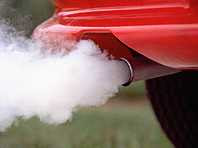 Known as the East Coast, it's actually the South Coast stretching eastward from the CBD (Central Business District) pretty much from the fringe of the central area (where the Singapore Flyer is) all the way out to the end of Singapore, to where Changi airport is. That whole stretch is mostly residential with some high technology, entertainment and a red-light district (apparently) thrown in. The main claim to fame is that there is a beach; a thin strip of gritty sand between the grey/brown murk of the straits between Singapore and Indonesia where the cargo ships anchor waiting for their turn in port.
Known as the East Coast, it's actually the South Coast stretching eastward from the CBD (Central Business District) pretty much from the fringe of the central area (where the Singapore Flyer is) all the way out to the end of Singapore, to where Changi airport is. That whole stretch is mostly residential with some high technology, entertainment and a red-light district (apparently) thrown in. The main claim to fame is that there is a beach; a thin strip of gritty sand between the grey/brown murk of the straits between Singapore and Indonesia where the cargo ships anchor waiting for their turn in port.
Thus the East Coast has the closest thing to a riviera that Singapore can muster. Big industry is zoned elsewhere and the investment is directed to cycle paths, bicycle rental kiosks, restaurants, camping, alfresco BBQ pits, chalets and even a water skiing pond (you are dragged around by an overhead wire).
Saturday we had a morning appointment just in from the beach and afterwards took a nice 5m walk back towards town. Everyone should do this periodically because it proves Singapore can be normal and fun. Joggers suffer in the heat but the determined ones manage a pained, sweaty shuffle. The sand is only 25ft across but it soon fills up with tents and huddles of young people hanging out, picnicking. Some intrepid swimmers brave the gloop; this ranges from Chinese in Lycra cozzies to fully dressed Muslim women sitting up to their waists, splashing around with the kids. Inline skaters, roller skates, the odd skate board and many hired tandem bikes with the poor guy at the front doing most of the work.
One word of advice; even on a cool, overcast day, walking in the shade of the tree canopy, wear a hat.

 Singapore has no natural energy reserves and relies on imports of petrol and water from Malaysia, and natural gas from Indonesia. Both have notable stories this week.
Singapore has no natural energy reserves and relies on imports of petrol and water from Malaysia, and natural gas from Indonesia. Both have notable stories this week. Singapore is having another cleanliness drive, particularly litter in the HDB estates and the Government has formed a
Singapore is having another cleanliness drive, particularly litter in the HDB estates and the Government has formed a 












